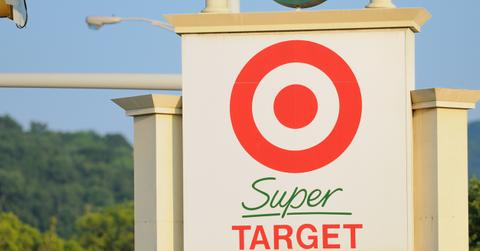Target Aligns With UN's Sustainable Development Goals
Every year, retail giant Target releases a corporate responsibility report regarding its sustainability goals. The 2016 report gave details about Target's new alignment with the UN's sustainable development goals.
Updated May 20 2019, 3:39 p.m. ET
The United Nations (UN) has long been concerned about global sustainability, and its sustainability goals, on topics ranging from hunger to economic growth to the environment, are listed in detail on its website. Recently, a corporate responsibility report, released by retail giant Target, listed goals which align with those released by the UN, and detailed how successful the company has been at hitting those goals, thus far.
In their 2016 CSR, available in its entirety online, Target details its progress in hitting each of its UN-aligned goals during the previous year. Though some of these goals, such as ending hunger, may seem lofty, Target has made substantial progress toward meeting many of them. In the report, goals are broken up into four categories, or "focus areas." These include "team," "planet," "communities," and "products," depending on each goal's focus. These categories are based on the same categories that the UN uses to categorize its own sustainability goals.
In the report, Target's goals are listed as having been met, exceeded, or in-progress. Most of Target's long-term goals, meant to take full effect in five or more years, are listed as being in-progress. Details about what progress has been made toward each of these goals are also available in the report. For example, Target has stated that it wants 80 percent of its buildings to be ENERGY STAR certified, by 2020. Because that date is still approaching, Target has listed the goal as in-progress, with 76 percent achievement, thus far. The report also states that, as of 2016, Target has "achieved certification in 1,409 of our buildings." and that the company will "continue to pursue ENERGY STAR certification, as we anticipate meeting this goal earlier than expected."
Other goals, such as volunteering one million hours annually, have already been exceeded. From their report, it is clear that Target is actively working to meet as many as possible. In Target's 2016 CSR, Jennifer Silberman, Target's Vice President of Corporate Social Responsibility, stated that the company is "rethinking our approach to CSR..." and that they have only just begun to "align our future commitments with the UN Sustainable Development Goals and assume our responsibility in addressing this global agenda."
Target's position as one of the largest retailers in the world seems to be at the heart of the responsibility the company feels, as Silberman went on to state that "we can leverage our size, scale and value chain to drive real change. From the products we source from 48 countries and the more than 1,800 stores we operate, to the way we engage our guests—we can make our business economically, environmentally and socially sustainable."
In other words, because large retailers like Target have the resources to create significant change in the world, many people feel they also have a responsibility to do so. In a world where many companies seem unconcerned about their overall environmental impacts, it is refreshing to see Target lead by example and strive to meet sustainability goals inspired by some of the world's top thinkers and change makers.
